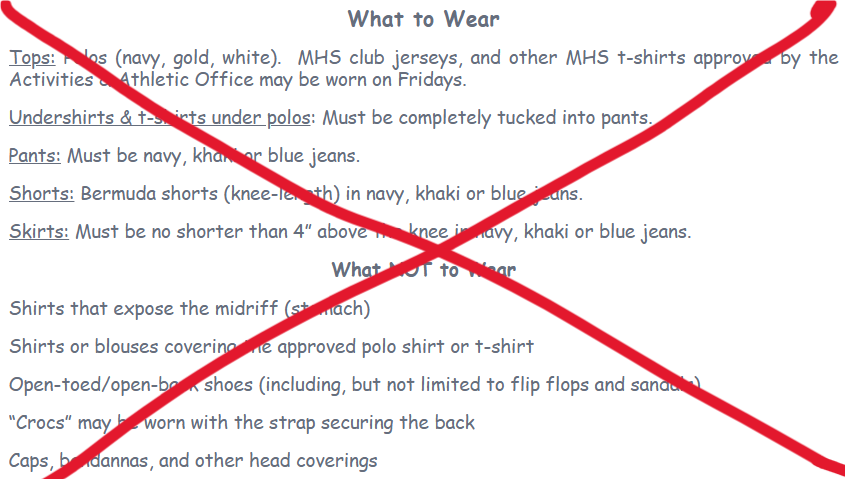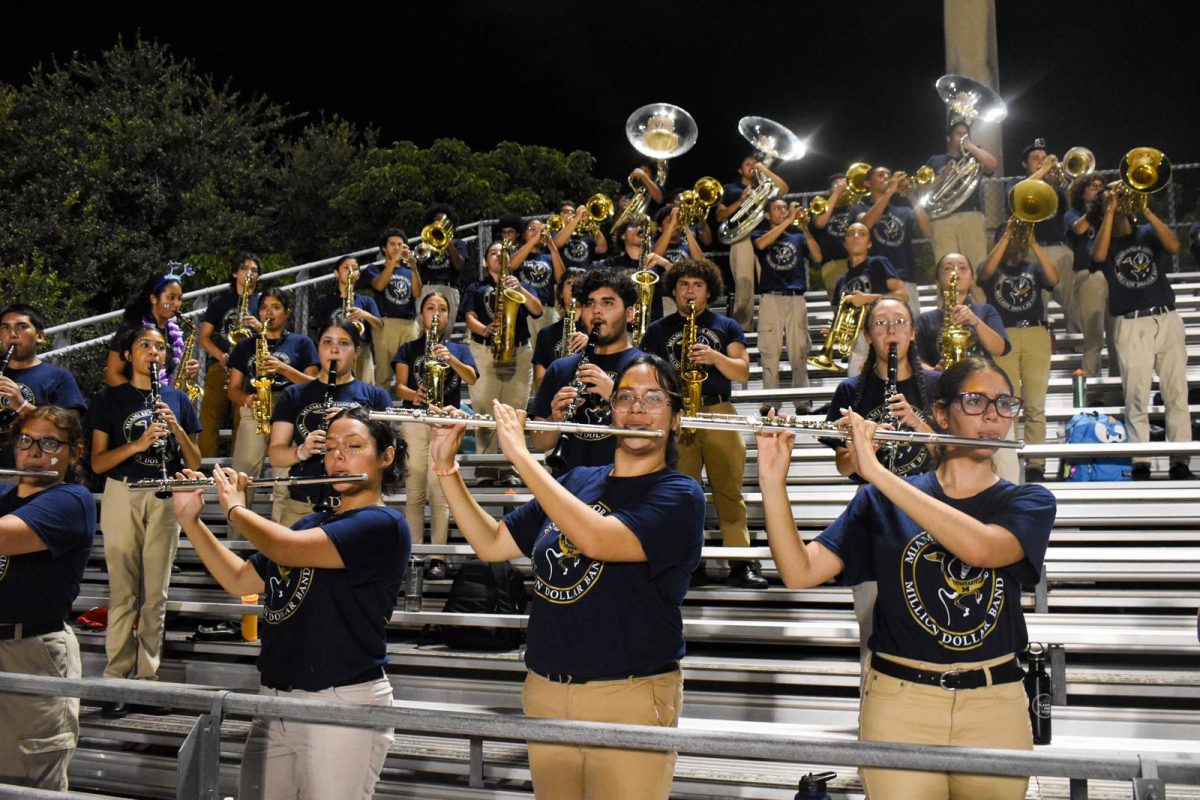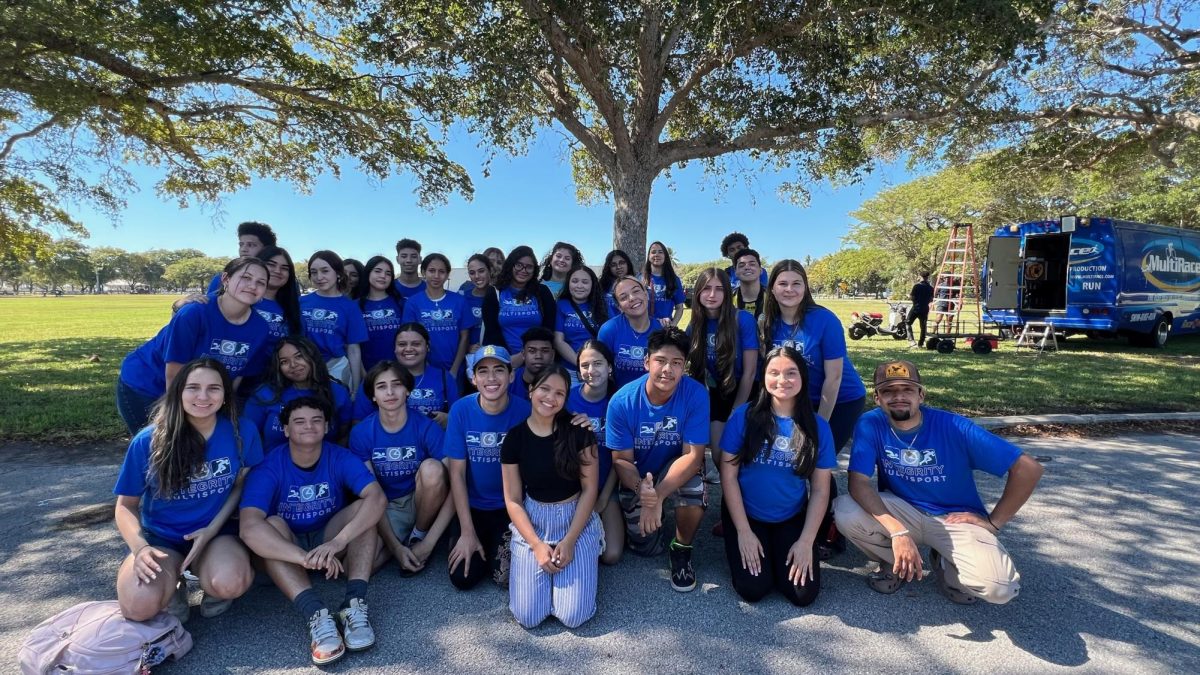
Advanced Placement (AP) courses are a major topic for some students when entering high school. The pressure to take AP classes and excel in them can be overwhelming; however, the pressure of not taking an AP class can be damaging as well. Mental health is a key factor to succeeding in academics. Non-AP students may choose to not take an advanced course because they doubt their capabilities, and some AP students suffer mental conflicts due to school stress.
Choosing the first AP class to take can be a difficult task. Senior Mayson Mendoza shared her high school experience. “I didn’t start off with one AP. I began with four in junior year,” she said. “During that year, I took A-PUSH, AP Seminar, AP Psychology and AP English Language.”
When asked about the AP she most struggled with, she replied, “I most definitely struggled with A-PUSH. It was intensive. It required lots of memorizing. Every unit we would have 150 vocabulary words we had to study for. I had to learn to manage my time with clubs, school, and work.” She persevered because of her friends who always helped her and her teachers that let her turn in assignments late and assisted her with writing.
On the other hand, students who don’t have APs shared why they have decided not to take any. Sophomore Annabela Montalvo said, “It hasn’t interested me, and I don’t think I’m at that level to deal with the stress that comes with an AP class.” Jared Romulus, also a sophomore, said something similar: “I think it’s too challenging and I’m not ready to face those challenges yet.”
AP classes are known for their demanding nature. Daniela Viera, a junior, shared her struggles with her toughest AP. “In sophomore year I took AP Chemistry, and it was very challenging. I got a three on the test. What helped me succeed in the class was studying a lot, attending tutoring, and studying with my friends and teaching them.” She explained how teaching her peers helped her acknowledge that she knew the material herself.
Senior Elizabeth Murillo stated, “I’m currently having a rough time in AP Stats. I really just needed to learn time management because I had never had to study for classes before since I used to be in regular [classes]. You honestly just need to learn how to learn,” she said.
The hardest AP Maydeling Caballero, a senior, took was AP Psychology. “It’s a lot of memorizing so definitely that one. Also, AP Research.”
An anonymous senior stated that their hardest AP is AP stats. They expressed that they are simply not a math person, and they are taking the class because they want to study Psychology, and they acknowledge they’ll need the credit. Even if they don’t pass the test, they are glad they’ll have an extra edge in college due to their previous knowledge on statistics.
AP students also shared how their mental health sometimes gets affected by their classes. “You kind of just have to accept that there’s always going to be someone better. You just need to keep taking your classes and trying your best. Even though someone is smarter, it doesn’t take away from your intelligence,” said Elizabeth, who also shared how she gets troubled easily.
“The workload sometimes just makes me not even want to start it because of how much there is.” To solve this, she said, “I break my work into specific days and have multiple calendars and to-do lists.”
Some AP students have mental battles due to the workload. An anonymous senior responded, “I stopped taking care of myself in many ways so I could take care of school, but now that I’m a senior, I only have one AP class so I’m able to relax.”
Most regular students find their lives to be more relaxed without APs. “I find it so much more peaceful. Since I used to be an AP student, I just realized it wasn’t for me,” said Angela Rios.
Insecurity can flood many of these students, as they may feel too incompetent to take an AP course. An anonymous freshman shared, “Last year [in middle school], they had lots of activities for advanced students and overall, more festivities. It sucks because I wish I could participate in them and be acknowledged.”
Regular students, however, shared their thoughts on which AP classes they would like to take in the future, or the ones that simply interest them. Senior Angela Rios said, “I would take AP Psychology because it’s cool to learn about behavioral things.”
An anonymous freshman stated, “I would take AP Spanish because I had the chance last year, but they switched my schedule, so I’d like to get that chance again.”
Choosing to take an AP class might require some persuasion, whether those are external or internal is different for everybody. Mayson Mendoza shared that her senior friends from her sophomore year told her she should consider taking AP courses as it looks better for colleges. “I’m honestly very happy I took AP courses because it really helped me with how I study and how I handle coursework,” she said. “I actually wrote about it in my college essay that AP courses are one of those things that help you truly prepare for college because a regular class and an AP class are completely two different worlds.”
An anonymous senior stated that she’s always been an overachiever and likes to be the best in everything, so she persuaded herself to take AP courses, “I believe it was a great choice because I have a strong GPA. Even though it was hard to get through it, I chose to take these classes and I’m able to manage them.”
Many students appear to be supportive of AP students, stating that their intelligence is something to be noticed, and that they’re very hardworking. Jared Romulus said that AP students may always have pressure to be the smartest and on top of their game and that maintaining themselves throughout their courses is admirable.
Angela Rios says, “I think they’re strong mentally to be on top of their AP’s as well as their regular curriculum courses. I feel for them, I really do. APs are hard.”
AP teachers also shared their thoughts on this issue. Dr. DeNight, who teaches AP Capstone Seminar and AP Research, stated his expectations for his AP students: “I feel like their desire and enthusiasm are more important than their IQ. There may be kids who’ve been in gifted programs since elementary and middle school, been in honors their whole life, and while that’s good, sometimes they don’t have the motivation to do well. That’s why I sometimes take students who’ve never been in honors or were in an ESOL program but have the motivation to do well and succeed.”
Ms. Munguia, math department chairperson who teaches AP Calculus AB/BC, thinks the biggest difference between AP and regular students is their willingness to challenge themselves. “While I expect a higher performance level from my AP students, intelligence and capability are not the deciding factors. Many regular students are highly intelligent and capable, but they may choose not to push themselves academically. My AP students remind me every day that the future is in good hands. They show that genuine curiosity and the willingness to tackle rigorous academic challenges are still very much alive.”
Dr. Suarez, who teachers AP English Literature, expects an AP student to be more of a natural independent worker. However, she points out, “I also teach English II regular, and I expect the English II regular students to always put their best effort in the work they complete. This is my third school year since I came back to teaching and I have seniors taking my AP English Literature class that were in my regular English II class, and that is the best part of this job, seeing the growth the students are able to have when they work, and you push them to excellence.”
Dr. DeNight does not recommend procrastinators for any AP course because, “The work piles up too much.” He also does not recommend students who don’t like to read or write because, “My field is a lot of reading and writing, so you’re not going to do well here.” He included that the students who actually do well in his classes are students who have come from ESOL or students that have never had the chance to be in honors. “It’s because they want it. You have to want it.”














Bryan Ayala • Jan 22, 2025 at 11:54 am
I like the real multiple perspectives this story shows. It’s a really, really good read actually. It’s definitely very diverse with ideas. I really like the teachers words in this story because I think, even then these people teaching us are people. So just seeing what they think about what they teach us, and how they feel about AP classes in general is very valuable to any student reading. (Sorry for the tap. 10/10)
Lucia F • Jan 22, 2025 at 11:34 am
Well written !
Ally • Jan 22, 2025 at 11:33 am
What Gabriel said
Keilly • Jan 22, 2025 at 11:31 am
This was very insightful, I’ll take it into consideration for my next choice in APs!
Gabriel F • Jan 22, 2025 at 11:28 am
Cool awesome sauce
Claudio • Jan 22, 2025 at 10:26 am
Fire
Manny V • Jan 6, 2025 at 11:43 am
The youth is our future, excellent job editor!